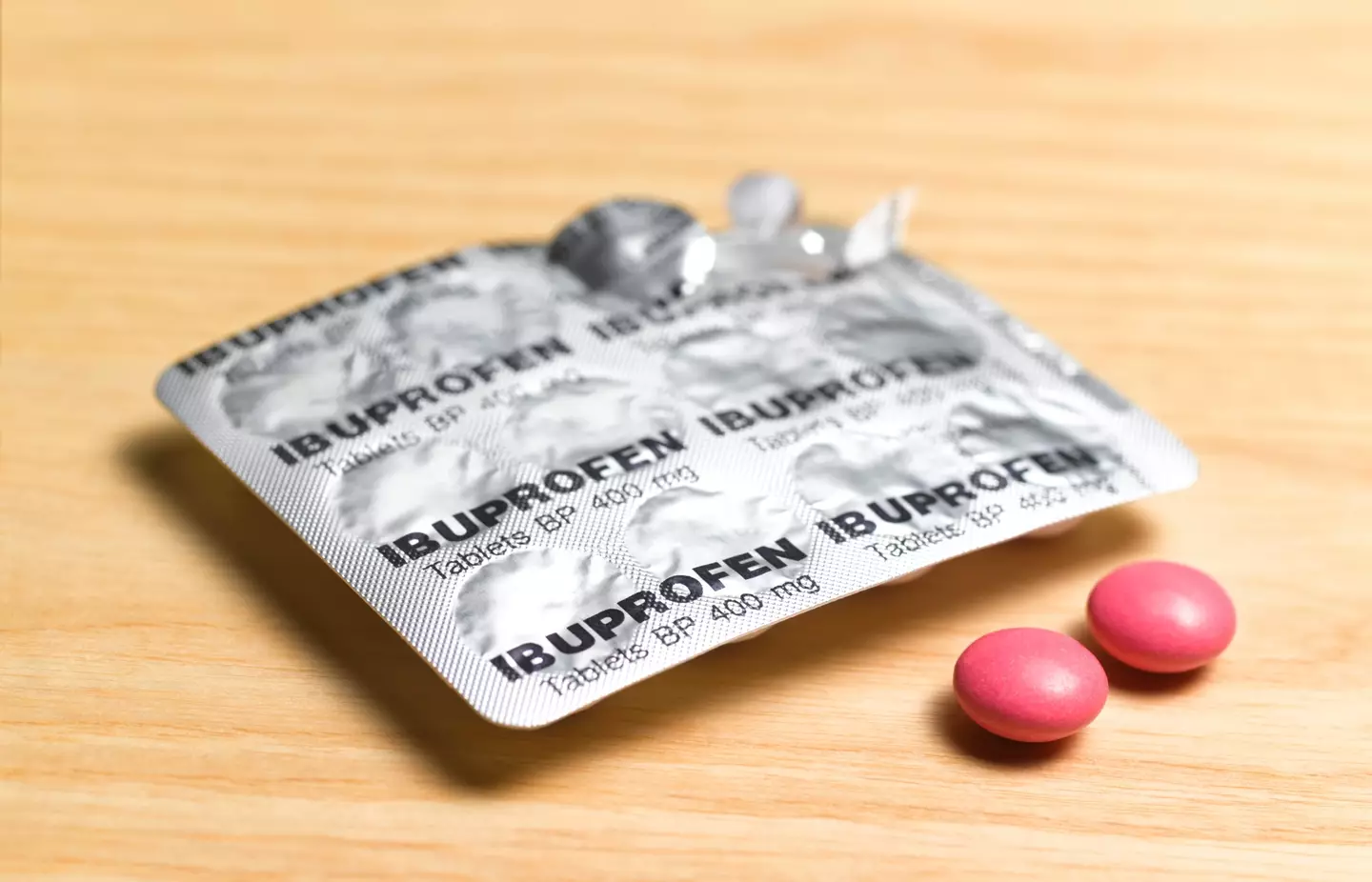
Ibuprofen is a common household painkiller, but there's one thing that you should never do when you're taking it.
The drug is hugely useful, and can provide easy pain relief.
But as with any medication, it's always important to know the potential side effects before you take it.
And while it might not be a stronger drug requiring prescription, it is still a medicine that should be treated with respect.
Advert
Even a less powerful drug can have side effects, and knowing how those work is essential.
What makes Ibuprofen work?

Ibuprofen is a type of drug called a non-steroidal anti-inflammatory drug (NSAID).
It relieves pain by targeting the hormones that cause swelling and pain.
This also works if you apply it to your skin rather than take it as a tablet, except the effect is contained to the area where you applied it.
When taken as a tablet, it usually takes effect within about 20-30 minutes.
What food and drink should you avoid when taking ibuprofen?

You can eat and drink normally while taking ibuprofen.
The NHS even says that it is safe to take ibuprofen and drink alcohol, though if you drink excessively while taking ibuprofen this can irritate your stomach and you should always drink in moderation if you drink at all.
One thing you should never do when taking ibuprofen
While you can eat and drink normally when taking ibuprofen, there is one thing that you need to be aware of when taking it.
This is that it's important to make sure you eat or drink before or while you take an ibuprofen.
The NHS says that you should not take it on an empty stomach.
"You can eat and drink normally while taking ibuprofen, but try to avoid drinking a lot of alcohol because this can increase the risk of side effects," it warns on its website.
So if you wake up in the morning with a headache, whether from an illness or perhaps self-inflicted, it's important to have something to eat before you take ibuprofen.
And of course if your pain persists after taking painkillers, it's probably a good idea to speak to a doctor.
How is it different from paracetamol?
Paracetamol is a different kind of drug, though it can have similar uses to ibuprofen in treating mild to moderate pain.
According to the NHS, paracetamol 'seems to work' by stopping chemical messages in the brain that tell your body there is pain.
Ibuprofen, meanwhile, acts on the hormones that cause pain.
While both can used for mild to moderate pain, paracetamol can be better for treating headaches.
The NHS says ibuprofen is good for period pain, toothache, migraines, as well as back pain or arthritis.
